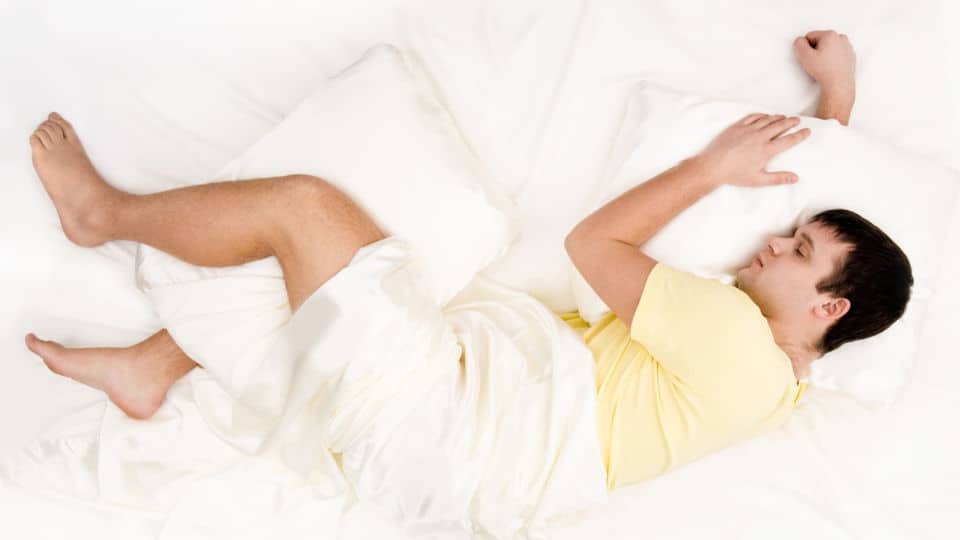Bizarre Things You Do In Your Sleep

Strange things happen in the wee hours of the night. In 2014, a report ranked Singapore as one of the top three most sleep-deprived countries. While sleep is instinctive, some, unfortunately, have to deal with a variety of common sleep disorders.
1. Grinding and Gnashing of Teeth: Bruxism
Also known as bruxism, the act of grinding, gnashing or clenching your teeth unconsciously during the day or at night can be linked to factors such as anxiety, stress, alcohol consumption, cigarette smoking, caffeine, snoring and fatigue.
Although the causes of sleep bruxism are unknown, it has been estimated that approximately 3% of Singaporeans suffer from bruxism. This number may be even higher because many affected do not know they grind their teeth,” said Dr Wong. In children, it may sometimes being associated with stress, but is typically a self-limited problem and rarely requires intervention. In contrast, bruxism in adults can cause severe damage to the teeth and is associated with headaches, jaw aches and wearing out of teeth.
Dr Wong highlights that bruxism could also be associated with some of these factors:
Also known as bruxism, the act of grinding, gnashing or clenching your teeth unconsciously during the day or at night can be linked to factors such as anxiety, stress, alcohol consumption, cigarette smoking, caffeine, snoring and fatigue.
Although the causes of sleep bruxism are unknown, it has been estimated that approximately 3 per cent of Singaporeans suffer from it. This number may be even higher because many affected do not know they grind their teeth,” said Dr Michael Wong, Family Physician & Consultant, Raffles Medical. In children, it is typically a self-limited problem and rarely requires intervention. In contrast, bruxism in adults can cause severe damage to the teeth and is associated with headaches, jaw aches and wearing out of teeth.
Dr Wong shares factors that may lead to bruxism:
- Increased anxiety or stress
- Aggressive, competitive or hyperactive personality
- Stimulating substances such as tobacco, caffeinated beverages or alcohol
2. Walking Dead: Sleep-walking
Sleepwalking is a behaviour disorder that originates during deep sleep and results in the sleepwalker walking or engaging in other behaviours while asleep. Because a sleepwalker typically remains in deep sleep throughout the episode, he or she may be difficult to awaken and will probably not remember the sleepwalking incident.
“Sleepwalking occurs more often in children than adults, with most children growing out of it by the time they reach puberty. It occurs in about 15 per cent of children, peaking between age eight and 12 years old,” Dr Wong explains.
For adults, the onset of sleepwalking is usually not associated with any significant underlying psychiatric or psychological problems. There is no specific treatment for sleepwalking. Improving sleep hygiene may eliminate the problem and it is important to establish a regular and relaxing routine prior to bedtime.
Sleepwalkers are encouraged to ensure a safe sleep environment by:
- Avoid sleeping in a double-decker bed
- Removing any sharp objects from the area near the bed
- Locking the doors and windows in your home before sleeping
3. Cold Wet Bed: Bedwetting
Bedwetting is a common problem, occurring in about 10% of children aged five and above. It may cause embarrassment and affect peer relationships. Dr Chua Siew Eng, Specialist in Psychiatry, Raffles Counselling Centre, shares that bedwetting causes may be psychological due to developmental issues or stress.
So does bedwetting only apply to children? The answer is no. “Bedwetting persists in about 1 per cent of the adult population. Diabetes, urinary tract infections, bladder instabilities or breathing issues during sleep can cause adults to wet their beds,” Dr Chua added.
Treatment options are available for bedwetting. Undoubtedly, it is best to seek medical advice to identify the cause. Other options can include setting an alarm to wake the individual before urination occurs, taking medication to reduce urination, reducing water intake and emptying the bladder before sleeping.
4. Night Chats: Sleep Talking
Sleep talking is a sleep disorder that involves unconscious talking during sleep. It varies in its content and presentation, ranging from mumbling, gibberish and nonsensical words to full, complicated, coherent narratives. Sleep talking can be spontaneous, or induced by others chatting with the sleeping individual. This nocturnal language can even sound different from their normal speaking voice.
Just like sleepwalking, sleep talking may be brought on by stress, depression, sleep deprivation, day-time drowsiness, alcohol, and fever. Sleep-talking often occurs concurrently with other parasomnias such as sleepwalking and night terrors.
“In rare cases, adult-onset frequent sleep talking is associated with a psychiatric disorder or nocturnal seizures. Sleep talking associated with mental or medical illness occurs more commonly in persons over 25 years of age,” says Dr Wong.



